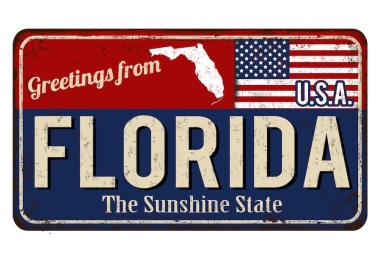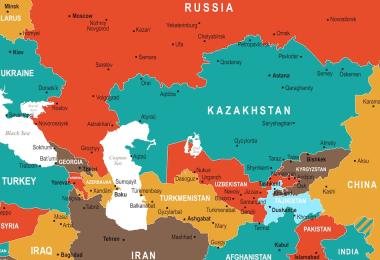The roll call of UK distributors has never looked so interesting – and this in an age of consolidation, when one company, Conviviality, can command a near monopolistic chunk of the market. Any journalist or sommelier has a diary packed with tastings; the only difficulty is getting to them all. To choose 50, using any criteria, would be difficult enough. To choose a mere 10 is near impossible. Although some of the biggest distributors in the country have been included, this is not a ranking by size, or turnover, or even by reputation – it’s a list of companies which are impressive by virtue of the wine they sell. In the end, that is the only criterion.
Conviviality
Between October 2015 and the following May, the Bargain Booze and Wine Rack owner Conviviality Retail gobbled up Bristol behemoth Matthew Clark and the huge Bibendum PLB group. Together with events bar companies like Peppermint (swallowed at the same time) and Wandering Wine Company (which came with Bibendum), and 716 retail stores, Conviviality has terrifying heft. It has 17% of all listings in the country – which means one in five wine lists.
Its vertical integration is comprehensive. It serves 23,000 outlets from grand hotels to pubs, and through Bibendum, and Walker & Wodehouse (which inherited a royal warrant), it lists boutique and artisan wineries from Galicia to Tasmania. This is a work in progress – the dust hasn’t settled yet.
Les Caves de Pyrene
In 1988 it was three people, a van, and a handful of wines from Southwest France. Today, Les Caves de Pyrene has a turnover of £26m ($32.5m), a 1,500-strong list, and sells to over 600 restaurants, retailers and wholesalers in the UK; there are offices in Spain and Italy, as well as a clutch of restaurants in London, Rioja and Melbourne. There is also London’s Real Wine Fair – one of the biggest artisan gatherings in the UK. Founder Eric Narioo, rumpled but indefatigable marketing chief Doug Wregg, and the team of buyer-shareholders are champions of the independent, the artisan and the esoteric. Their choices reflect enthusiasm rather than commercial viability, and for that they are much loved by sommeliers and independent merchants. “We’ve never followed trends or chased business,” Wregg says. Instead, the business has come to them.
Enotria&Coe
Enotria&Coe is a very different company to the Enotria Remo Nardone founded with a handful of Italian wines (Fontanafredda, Umani Ronchi and Fattoria dei Barbi are still stalwarts) in 1972. He sold to a venture capitalist in 2005; ten years later, after major investments under the leadership of Troy Christensen, Coe Vintners was acquired. Enotria&Coe now turns over £150m to £200m, employs 300 staff, and sells 6,000 different lines, 250 of them exclusively.
Enotria&Coe doesn’t have the pizzazz of Liberty, but buyers like its strong commitment to the artisan. “They also have a fabulous spirits list,” says master sommelier Gino Nardella of the Stafford Hotel.
Merchant Vintners
Merchant Vintners was founded in 1966 by John Townend of the long-established Yorkshire wine merchant House of Townend. Concerned about the increasing power of the big breweries, a group could buy in bulk, which was especially important when the New World started shipping in the late ’80s, and supermarkets took off. “Economy of scale is our raison d’être,” chairman James Tanner says. Key agencies are New Zealand’s CJ Pask and Alan McCorkindale, Gouguenheim of Argentina, and Mitchell Wines of Clare Valley. There are now 20 members from Devon in the south to Inverness in the north of Scotland, including major merchants like Tanners, and Haynes, Hanson & Clark, selling around £6m of wine, 70% of it New World, and almost all of it exclusive to the group. It’s by no means the biggest distributor, but in terms of extending its reach into the remoter parts of the country, Merchant Vintners has influence.
Boutinot Wines
Everyone knows the name. Established in 1982 and now the UK’s third-biggest distributor by listings, Boutinot sells 50m bottles a year, more than half of which it produces itself, in Burgundy, Piedmont, the Rhône and South Africa, among others. After a management buyout in 2013, the company doubled its staff, and now employs 143, including five winemakers, a master blender, two MWs and an MS. Witty innovations like the Camper Vin bag-in-box have been added to a list including key agencies like Cave de Tain l’Hermitage and Cave de Turckheim. The wine industry nowadays is “more complicated and complex”, part-owner Michael Moriarty has said. It seems likely the wine business is going to hear a lot more from Boutinot.
Berkmann Wine Cellars
One of the marks of a good distributor is the density of the crowd around their table at tastings, and Berkmann always attracts a scrum. A second-generation, family-owned company, it turned over £66.5m last year, and while it can appear old-fashioned, its 96 exclusive agencies show a list which continues to be built with confidence and imagination. It includes household names such as Antinori, Duboeuf and Joseph Phelps, and lesser-known but fascinating producers such as Alto Adige’s Hofstätter or Martinborough’s Julicher. Sommeliers love them – Berkmann has been named Great Value Wine Merchant of the Year four years in a row at the Sommelier Wine Awards.
Liberty Wines
The noise at a Liberty tasting is indescribable – a sweaty pack of buyers and journalists elbowing their way round dozens of laden tables. At the centre of it all is the courteous figure of David Gleave MW, who started 20 years ago with four people and now employs 130; he sold £45m of wine in 2016. The 300 agencies and 1,500 premium wines include the multinational Sogrape, which joined last year, as well as deep offerings from the rest of the world (Spain is especially rich, as is Burgundy). But Gleave started as an Italian specialist (there are over 370 offerings) and is proud still to be thought so. The secret? “We provide the right wine to the right place at the right time and price,” he says. Simple, really.
Hatch Mansfield
Taittinger, Errázuriz, Villa Maria, Kleine Zalze, Cune… Hatch Mansfield has 15 producers on its books, and each of them is of world renown. There are three shareholders – Patrick McGrath MW, Louis Jadot, and the premium Chilean winery Errázuriz – running an £80m-turnover company selling 1.5m cases of wine to all sectors of the trade, national, regional, off- and on-trade and travel retail. Criteria for becoming a Hatch brand are simple – “they must have heritage, authenticity and provenance,” which in practice means they are family-owned, own all their vineyards, and control the wine from vine to bottle. McGrath is an unassuming figure but he understands publicity. Just over a year ago he and Pierre-Emmanuel Taittinger made national headlines when they hired an upstairs room in Westminster Abbey to announce the Champagne house’s purchase of 69 ha of vineland in southern England.
Berry Bros. & Rudd
It is both ancient – it has occupied its premises in St James’s Street, Piccadilly, since 1698 – and modern (the real business happens 50 miles away in a utilitarian business park). But there’s nothing old-fashioned about Berry, Bros. & Rudd. It launched its website in 1994 and was an early adopter of online trading with its BBX platform. Family-owned, it has 442 agencies and exclusive suppliers, turns over £145m a year, and has a warrant to supply both Her Majesty the Queen and Prince Charles. There have been difficulties – in 2013 it posted losses of £7.3m, and there were problems with its long-term Chinese partner, all on top of the spectacular collapse of the Bordeaux en primeur market which in its heyday was bringing in £60m a year. After a major shakeup across all divisions, culminating in the appointment of new CEO Dan Jago, BB&R sails on, its aim always to be “the closest link between those who make the wine and those who drink the wine,” as the 19th century director Charles Walter Berry used to say.
Hallgarten Druitt & Novum Wines
In 2016, Hallgarten Druitt & Novum bought the Australia and New Zealand specialist Hallowed Ground’s Australia list, including such gems as Teusner and Fox Gordon. It had done the same with another niche importer, Novum Wines, in 2010, thereby securing highly respected Steve Daniel as head of buying. With those two canny moves, in six years Hallgarten (turnover is £46m with 185 exclusivities) has transformed itself from a solid if humdrum importer to a dynamic player with an electric range of wines – its Greek and Mediterranean portfolio the envy of companies twice its size. There are holes – the American list uninspiring. But Hallowed Ground was taken on precisely to rectify a gap in Australia, and you can be sure managing director Andrew Bewes has his eye on California.
With thanks to Peter McAtamney, principal of Wine Business Solutions, for help in compiling this list.
Ten worth mentioning
Flint Wines
Fantastic Burgundy list, exciting new-wave Americans.
Indigo Wine
Agenda-shifting artisanal importer. Possibly the best Spanish list in the UK.
New Generation Wines
Constantly surprising and imaginative, especially in France and Italy.
Carte Blanche Wines
High-quality artisan and bio, the South of France, Loire, Spain.
Roberson Wine
Now online-only, deep and imaginative buying, especially in modern California, still excites.
Negociants UK
Yalumba-owned, preeminent Aussie and New Zealand list.
Gaucho
Does one thing and does it best: Argentina.
Accolade Wines
Biggest in the UK and Australia, fifth biggest in the world. Range of top New World producers.
The Wine Treasury
Old-fashioned but un-ignorable on California and Oregon.
Armit Wines
Château Lafleur, Gaja, Sassicaia, Leflaive, Huet… and that’s only the start of the list.








